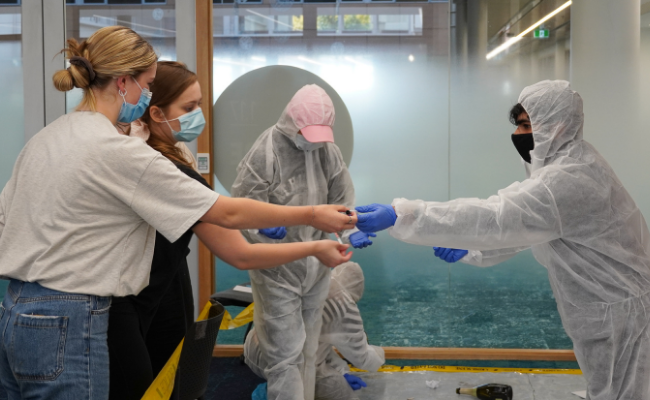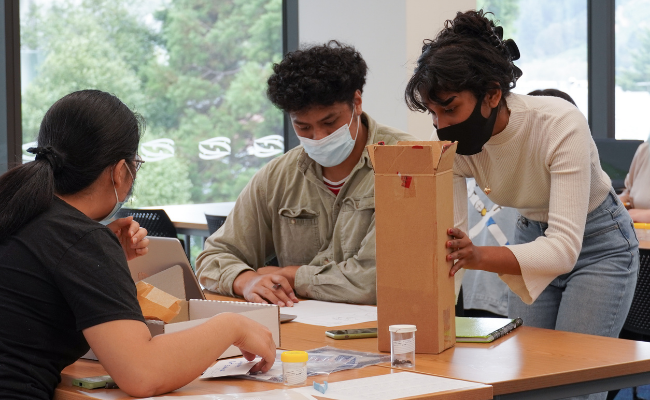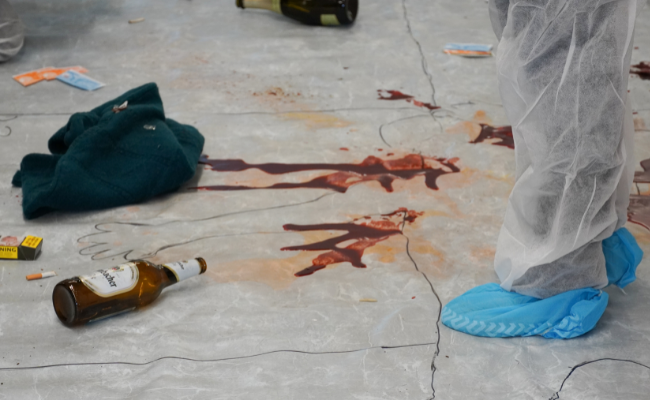
Blood spatter, broken glass, a game of poker gone wrong. These are just a few pieces of the puzzle for students enjoying an eerily calm introduction to Summer School.
The Forensic Biology paper is a once-a-year experience and a highlight for many undergraduates. The course takes place over five weeks, led by Health Sciences Lecturer Dr Angela Clark with input from guest lecturers from the wider forensic industry.
This year students are investigating a mock crime scene which takes place after what at first glance appears to be a game night. The scene, which Angela has named The X Mystery, has been crafted to allow students to apply practical research skills and jump into with no prior forensic training.
“I interviewed people such as industry experts and developed this paper as a research-based pedagogy after being awarded a grant. The students receive context clues such as fake newspaper reports to influence their bias and circumstantial evidence. For students who aren't experts it's a neat way to learn the theory in practice with the assistance of real forensic experts.”

The paper, which is the only one of its kind at the University, attracts students from various paths of study. Politics and Criminology student Alex Leckie-Zaharic says it's an area he has always found intriguing.
“I grew up with an interest in true crime. For most of us, looking at things 'outside of the norm' that we wouldn't do ourselves, is fascinating. Our first tutorial is analysing a crime scene - I think anyone with a passing interest in true crime would enjoy that.
“It's only week two and we have already had four guest lecturers who are all knowledgeable in their areas. It's exciting because these people are real experts and give us real case examples. This is quite a different paper from what I've previously done in Summer School.”

Among the guest lecturers is Rachel Nickerson who trains Scene of Crime Officers (SOCO) at the Royal New Zealand Police College in Wellington.
“Over the years I've been to loads of scenes. This one is quite complex and is reasonably realistic. Angela manages to get quite varied forensic evidence into a small amount of space. It's nice to be here working with students who are keen and interested.”
Rachel is one expert who was consulted when the mock crime scene was crafted several years ago and says one of the key skills the course focusses on is communication.
“The most important skill with forensics is the ability to communicate your findings. If you can't speak at an appropriate level it will negatively impact your work.”
The Forensic Biology paper kicked off in early January 2022 during Orange level settings. It is expected to be on offer again for Summer School in 2023.
Kōrero by Internal Communications Adviser, Chelsea McRae
